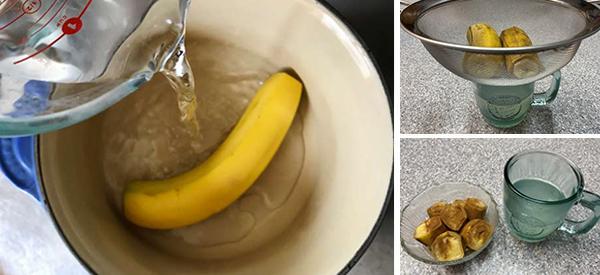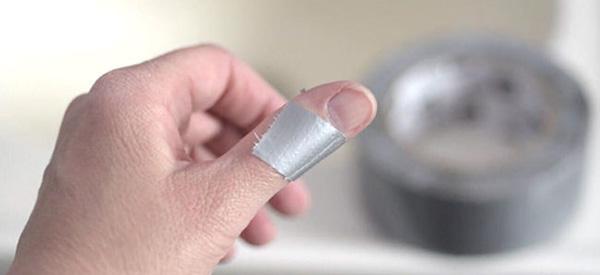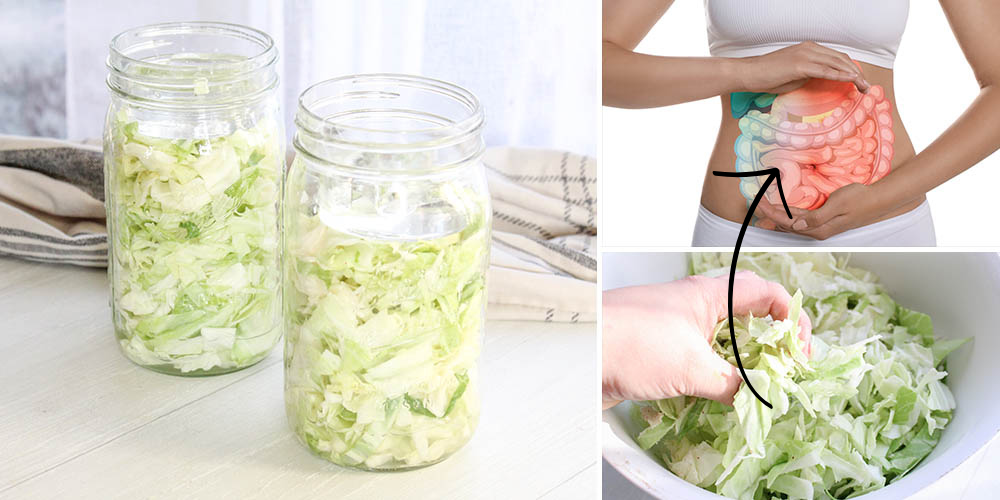
What Your Gut Says About Your Brain Health
Gut health is a hot topic in the wellness community, and for good reason! Your gut health affects every part of your body, including your brain health. Your gut and brain are in constant communication, where the brain sends signals through the nervous system. These signals can affect your mood, memory, immunity, and even your hormonal health.
Simply put, when your gut health is optimized, your entire body, even the brain, is at its peak. In this article, we’ll learn about the interesting connection between the gut and the brain. We’ll explore some “brainy” symptoms that are a telltale sign your gut health needs attention. We’ll even give you a simple recipe that you can include with (almost) every meal to keep your gut happy and healthy. Read on to discover how to nourish your brain from the inside out.
Signs of an Imbalanced Gut
The body is full of connections, including the gut-brain axis, which can positively or negatively impact your brain health. The gut signals to the brain through neurotransmitters that send hunger signals and alert the body of sickness. Many people don’t recognize the signs of an imbalanced gut because they mimic other symptoms. Here are a few things to look out for.
Digestive Issues: The most obvious symptom of an imbalanced gut is digestive issues. Nausea, bloating, and diarrhea are the most common indicators that something is up, but you can also experience cramping and even blood in the stool.
Mental Health Issues: Gut imbalances can decrease serotonin levels, leading to poor mental health. Inflammation of the gut lining is connected to anxiety and depression flare-ups that, for many, remain unsolved. The gut is also a main producer of melatonin, the hormone that regulates sleep. When that production is disrupted, it can lead to restlessness, which only increases these issues.
Cognitive Issues: Aside from the above issues, many with poor gut health experience limited nutrient absorption, which can cause brain fog and poor memory. Nutrient deficiencies can also cause chronic fatigue and headaches.
Bloating, brain fog, anxiety—it’s easy to brush these off as random issues. But what if they’re not? What if they’re signs your gut is crying out for help? And worse, what if ignoring them leads to long-term damage you can’t reverse?
An imbalanced gut doesn’t just make you uncomfortable—it can silently trigger:
- ⚠️ Chronic inflammation that spreads beyond your gut, leading to autoimmune disorders
- ⚠️ Mood disorders like anxiety and depression, as your gut fails to regulate serotonin
- ⚠️ Hormonal chaos that disrupts sleep, energy, and even fertility
- ⚠️ Memory loss and cognitive decline from nutrient deficiencies and inflammation
And the scariest part? Everyday habits are making it worse—even ones you think are harmless. Processed sugars, over-the-counter medications, stress… they’re all silently breaking down your gut lining, leaving you vulnerable to illness, fatigue, and mental health struggles.
If you’re worried your gut might be out of balance (or worse, if you’ve been ignoring the signs), it’s time to take control.
For more hidden signs of an imbalanced gut—and the dangerous triggers you need to avoid immediately—click here to uncover step-by-step protocols that not only heal your gut but also protect your entire body from the long-term effects of poor gut health. With practical, easy-to-follow remedies, you’ll learn how to nourish your body from the inside out and reclaim your health naturally.
How to Improve Gut Health
Suspect your gut health could use improvement? Here are a few simple ways you can improve your gut health..starting today!
Reduce Sugar Intake: Processed sugar can disrupt the brain’s microbiome, causing a decline in all areas of health. In fact, many say processed sugar is just as bad for your health as alcohol! Keep your gut lining happy by avoiding processed sugar and sticking with honey, maple syrup, and stevia.
Avoid Antibiotics: Antibiotics are a common prescription for viruses, stomach bugs, and infections. They clear sickness quickly but leave gut health imbalanced for weeks to months afterward. The best way to avoid this is to use antibiotics only when truly needed, trying natural remedies first.
Eat Probiotic-Rich Foods: Probiotic foods can replenish good bacteria in the gut, flooding out negative bacteria. They can also strengthen gut lining and repair damage caused by stress. Probiotic foods include kimchi, yogurt, miso, kombucha, and tempeh. You can purchase these items at your local grocery store or health food store, but they can also be made at home. In fact, fermented vegetables have increased in popularity and now include options like pickles and carrots.
Incorporate Gut-Healing Herbal Remedies: Alongside dietary changes, certain herbs are known to nourish and protect the gut lining. Slippery elm and marshmallow roots help soothe inflammation, while plantain promotes tissue repair. Medicinal mushrooms like Reishi and Turkey Tail support overall gut flora, and Lion’s Mane is especially praised for its ability to aid digestion and improve the gut-brain connection. These herbs and mushrooms are powerful allies in maintaining a balanced gut and can easily be added to your routine in tincture form.
How to Make Gut-Healthy Sauerkraut
Sauerkraut is one of the easiest things to ferment yourself. Fermented foods are an ancient remedy to boost gut health and improve digestion. Consuming fermented sauerkraut can help you stay well without spending a lot on supplements. This simple process is one that anyone can handle, as it’s literally a “fix-it-and-forget-it” recipe. Follow this easy tutorial to experience the benefits of fermented foods in just a week.
You can also make an easy and tasty cabbage juice, but that has already been discussed in an article back in 2021 here on The Lost Herbs. If you want to look it up, here’s the link.
 Ingredients
Ingredients
- 1 head of cabbage (red or green), if you could get organic cabbage it would be great. Or, the best choice, grow your own if you can
- 1 tablespoon pink Himalayan salt or sea salt
- ¼ – ½ cup water
Step One: To prepare the cabbage, remove the outer leaves and slice it in half. Remove the “core” and thinly slice the rest of the cabbage into ribbons. You can use a knife, mandolin, or food processor.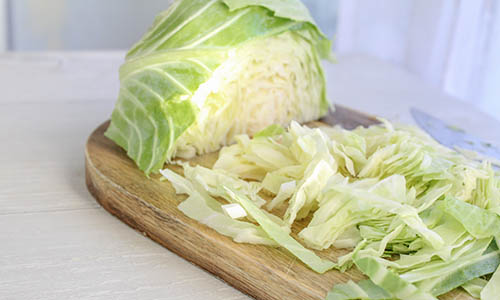
Step Two: Place the shredded cabbage in a large bowl and sprinkle the salt over top. Massage the salt into the cabbage and let it sit undisturbed for 10 minutes. This helps soften the cabbage and release its natural juices.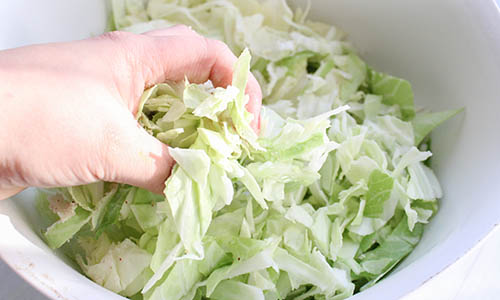
Step Three: Transfer the salted cabbage and its juices into Mason jars of a fermentation crock. Pack down using a wooden spoon or dowel to eliminate air pockets and maximize space. Add ¼ cup – ½ cup of water to the jar to cover the cabbage halfway.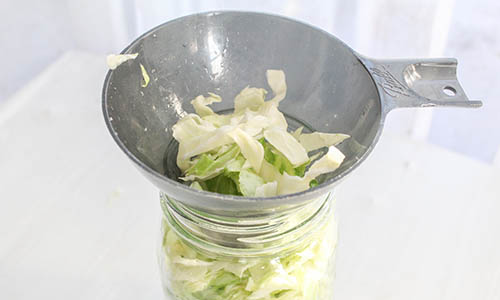
Step Four: Place a fermentation weight or whole piece of cabbage over the top of the cabbage to keep it submerged in liquid. Place a lid or cheesecloth on the jar and set in a cool, dark area to ferment.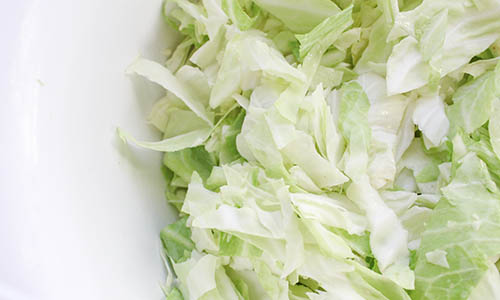
Step Five: Every day, “burp” the jar by opening the jar and closing it. You’ll want to ferment your sauerkraut for at least a week or longer if you can wait. The longer your sauerkraut ferments, the stronger the flavor will be. If desired, you can add caraway seeds, hot peppers, dill seeds, garlic, turmeric, or ginger. Experiment with various additions to see what your family likes best! 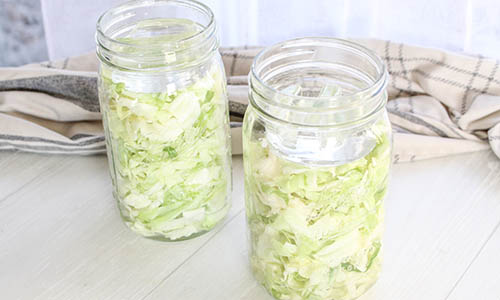
How to Use Homemade Sauerkraut
You can use your homemade sauerkraut as a side dish. Many enjoy eating a few tablespoons with each meal to help digestion. You can also add a scoop to salads or sandwiches for a crunchy twist. Some prefer using sauerkraut as a garnish for their favorite soup or salad. Of course, you can include it in casseroles, too!
Your body may need time to adjust to eating fermented foods, especially if your gut health is particularly bad. If that’s the case, start with 1-2 tablespoons a day, then work your way up.
Once the sauerkraut is fermented to your liking, store it in an airtight jar placed in the fridge. It can last 4-6 months if stored properly. To avoid contamination, always use a clean utensil when serving. If your sauerkraut has mold or smells rancid, throw it away immediately.
Fermented foods like sauerkraut are amazing for gut health—but sometimes, they’re not enough. If your gut is already struggling, or if you’ve been dealing with issues like persistent bloating, brain fog, or unexplained fatigue, it’s a sign that your body needs more than just probiotics.
And let’s be honest—keeping up with homemade ferments isn’t always easy. Life gets busy, and before you know it, your gut health slips through the cracks. Or worse, you’ve done everything right, but years of stress, poor diet, or medications like antibiotics have left your gut lining damaged beyond what food alone can fix.
I recently started looking for an option that has it all, without much effort. And I really did find a tincture, the pinnacle of gut health support, combining some of the most powerful herbal remedies for restoring your gut flora and healing your digestive system from the inside out.
Inside every drop, you’ll find a potent blend of:
🌿 Slippery Elm and Marshmallow Root to soothe and repair the gut lining
🌿 Plantain to promote natural tissue healing
🍄 Reishi and Turkey Tail mushrooms to balance gut flora and fight inflammation
🍄 Lion’s Mane for supporting the gut-brain connection and improving digestion
It’s like giving your gut a complete reset, without the hassle of managing multiple remedies. Just a few drops a day, and you’re supporting your body’s natural ability to heal and thrive.
Your gut is the key to your overall health. I’ll leave a link for you here to discover how this powerful tincture can transform your health from the inside out.
Why One Remedy Isn’t Enough to Heal Your Gut
You’ve made your sauerkraut, maybe even tried a tincture or two—but here’s the thing: gut health is more complex than most people realize. It’s not just about adding probiotics or avoiding sugar. If you’re only focusing on one or two remedies, you’re leaving your gut vulnerable to a cascade of issues that can spiral out of control.
Think about it—what happens when bloating doesn’t go away? When does acid reflux turn into chronic pain? Or when a leaky gut leads to more serious autoimmune problems? Most people don’t even realize their gut is at the root of these issues until it’s too late.
That’s why I always recommend having a comprehensive guide at your fingertips—and there’s no better resource than The Forgotten Home Apothecary.
This isn’t just a recipe book. It’s a complete toolkit for restoring your digestive health from the inside out. Inside, you’ll find 24 powerful recipes designed specifically to heal and protect your gut, including:
- 🌿 Herbal Parasite Flush to eliminate harmful intruders hiding in your system
- 🌿 Rejuvelac for Leaky Gut to repair and strengthen your gut lining
- 🌿 Anti-Parasitic Black Walnut Drops to cleanse and detoxify your digestive tract
- 🌿 Bowel-Balance Elixir to regulate digestion and soothe chronic discomfort
But that’s just scratching the surface. Whether you’re battling acid reflux, bloating, or even more serious conditions like colitis or IBS, there’s a natural remedy waiting inside this book. And the best part? These aren’t complicated formulas or expensive supplements. They’re simple, time-tested remedies you can make right at home. And that’s just the beginning—these gut-healing remedies are part of the 250+ time-tested recipes inside this book, covering everything from digestive health to immune support and beyond.
If you’ve tried everything and still feel stuck, it’s time to get to the root of the problem. Click here to add The Forgotten Home Apothecary to your shelf and finally give your gut—and your entire body—the support it deserves.
You may also like:
Frequently Asked Questions
What are the benefits of eating sauerkraut?
Sauerkraut is packed with probiotics that support gut health, improve digestion, and boost your immune system. It’s also rich in fiber, vitamins C and K, and antioxidants that help reduce inflammation and promote overall wellness.
How do you eat sauerkraut for gut health?
You can eat sauerkraut as a side dish, add it to salads, sandwiches, or even use it as a garnish on soups and casseroles. For gut health, it’s best to eat it raw to preserve its probiotics.
How much sauerkraut should you eat for gut health?
Start with 1 to 2 tablespoons of sauerkraut per day to help your gut adjust. You can gradually increase to about ¼ to ½ cup daily for maximum probiotic benefits.
How do you cook duck breast with sauerkraut?
Duck breast pairs beautifully with sauerkraut in savory dishes. Sear the duck breast until crispy, then bake it with a side of sauerkraut for a tangy contrast. Sauerkraut also works well in stews, casseroles, and even as a topping for sausages and roasted meats.
Can you freeze sauerkraut?
Yes, you can freeze sauerkraut. However, freezing may reduce the probiotic content slightly. Store it in an airtight container or freezer bag, and it will last for up to 6 months.
Can dogs eat sauerkraut?
Yes, dogs can eat plain, unseasoned sauerkraut in small amounts. It can aid digestion and boost their immune system. However, avoid sauerkraut with added spices, onions, or garlic, which can be harmful. Always consult your vet before introducing new foods. This applies to other pets as well—some may benefit from fermented foods, while others might not tolerate them.
Does sauerkraut go bad?
Yes, sauerkraut can go bad if not stored properly. If it smells off, has mold, or tastes unusually sour, it’s time to throw it out. Keep it in an airtight container in the fridge for up to 4-6 months.
How do you make probiotic lemonade for gut health?
To make probiotic lemonade, mix freshly squeezed lemon juice with water, a natural sweetener like honey, and add a probiotic starter like whey or water kefir grains. Let it ferment at room temperature for 1-3 days until it’s slightly fizzy.
What are other foods that help gut health?
Besides sauerkraut, probiotic-rich foods like yogurt, kefir, kimchi, miso, and kombucha are great for gut health. Can yogurt help gut health? Yes, yogurt with live cultures provides beneficial bacteria that improve digestion and balance your gut microbiome.

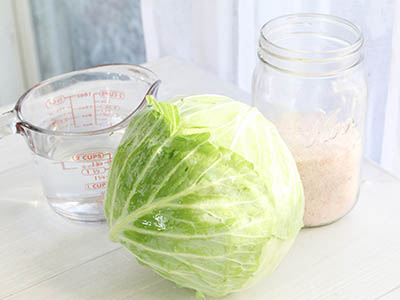 Ingredients
Ingredients
